Books
Books
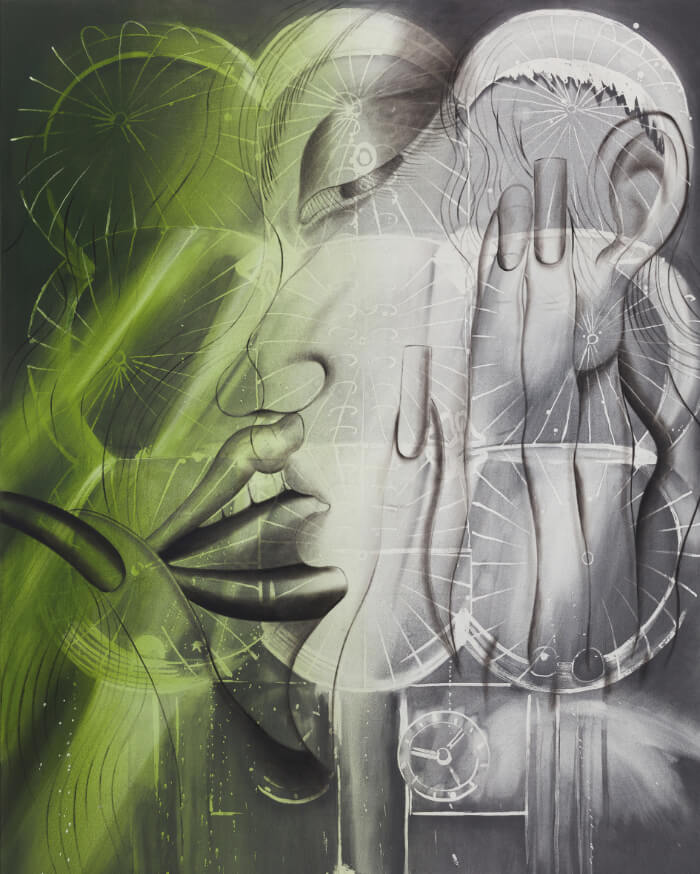
The Sniper in the Brain
Upside-down trees with roots reaching toward the cosmos, glasses, pitchers, transparent vessels, and bodies blending human and animal, male and female features populate Jacopo Pagin’s works. These figures reveal themselves in their decadent and symmetrical being, caught within a web of references centered on the evocative power of the gaze.
The first monograph dedicated to Jacopo Pagin, designed and edited by Ismaël Bennani and Orfée Grandhomme and featuring a critical contribution by Alessandra Franetovich, brings together over 200 drawings and paintings to explore the visionary, obsessive, and hypnotic qualities of the artist’s work and its profound connections with exotic, mediumistic, and new-age practices.
The book is co-published with Make Room, Los Angeles.
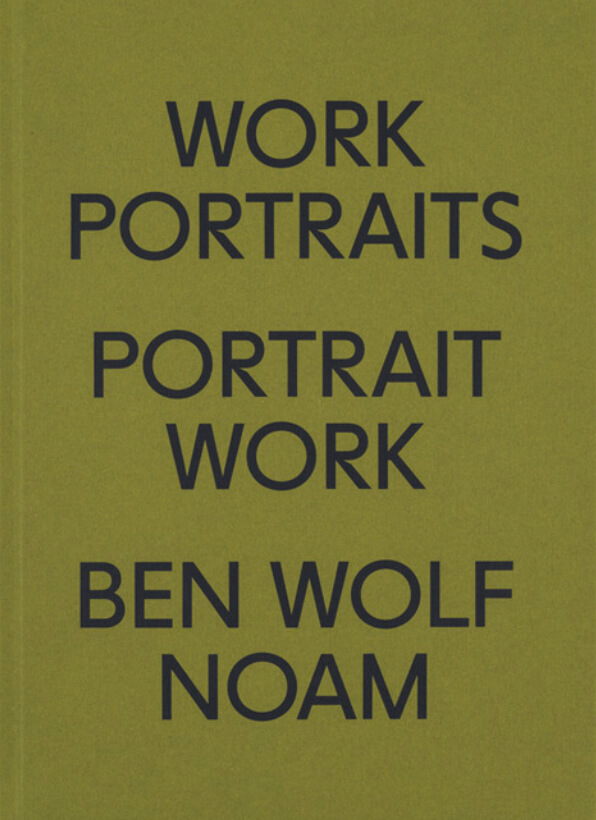
Work Portraits Portrait Work
60 painted portraits of friends at work from the art world and culture.
In the expanded field of contemporary art, it is common to consider "work" and "pleasure" as one and the same thing. In this sense, it is easy to see how "labor" rapidly doubles as "labor of love," the subtext being that doing what one enjoys is invaluable no matter what. Inhabiting this dichotomy, Ben Wolf Noam's book Work Portraits Portrait Work is both a visual exploration of work in the cultural field and a statement of personal artistic intentions. Presenting 60 painted portraits of friends from the art world and culture in general, the book is a compendium of artists, musicians, chefs, filmmakers, actors, writers, and academics depicted while laboring in their chosen workplaces. At the same time, it is also a conceptual reflection on the complex nature of work in the cultural field, the relationship between subjectivity and collectivity, self-representation and belonging. The outcome is a surprisingly heartwarming object, somehow suggesting that work in the arts is never solely an individual affair. As Dean Kissick writes in one of the four texts specifically commissioned for the book— with Laura Adler, Gabriel Winant, and Ashley Mears —"art is a communal project." Furthermore, Work Portraits Portrait Work serves as a record of a specific time and place—most portraits depict people close to Noam himself, often in studios, apartments, cafés—but it does so embodying a fantasy of such time and place. The subjects of the paintings become a community, and this community becomes a character in Ben's narrative about what making art today might signify: a representation of what artistic representation could look like.
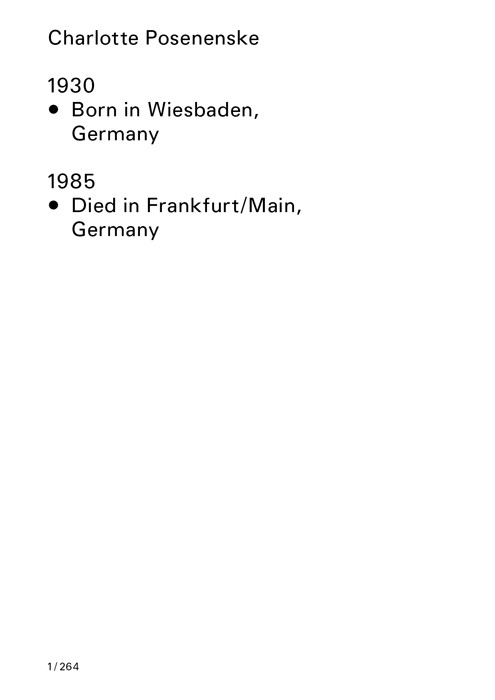
Installation Views
Conceived as a visual résumé, Installation Views provides both a comprehensive overview of Charlotte Posenenske's solo exhibitions and a record of her numerous group shows.
In her Manifesto, Charlotte Posenenske stated: "I find it difficult to come to terms with the fact that art can contribute nothing to the solution of pressing social problems."
Developing her artistic practice throughout the 1960s, Posenenske produced a body of work that uniquely combined several strands of the art of the period: conceptualism, minimalism, and socially engaged participatory art. Her Manifesto, published in Art International in May 1968, lays out the social demands on art as well as the impossibility of fulfilling those demands. Shortly after its publication, Posenenske left the art world behind to pursue her studies in sociology, undertaking a new career in that field.
Conceived as a visual résumé, Installation Views provides both a comprehensive overview of Charlotte Posenenske's solo exhibitions and a record of her numerous group shows. The book features an essay written by curator Erlend Hammer on the role of documentary photographs in the circulation of works of art.
The book was published in conjunction with the eponymous show at the Haugar Art Museum in Tønsberg, Norway—the first full-scale presentation of the artist's oeuvre in Scandinavia. The exhibition showcased works from all the artist's major series of modular sculpture. Consisting of works made over the course of less than 12 months, between 1967 and 1968, preceding the abrupt end to Posenenske's career as an artist, the exhibition had the character of a snapshot. We are left wondering whether her withdrawal from the art world was a logical or necessary consequence of the development of the series. What are we to do with Posenenske's assertion that art is powerless to effectively change society for the better?
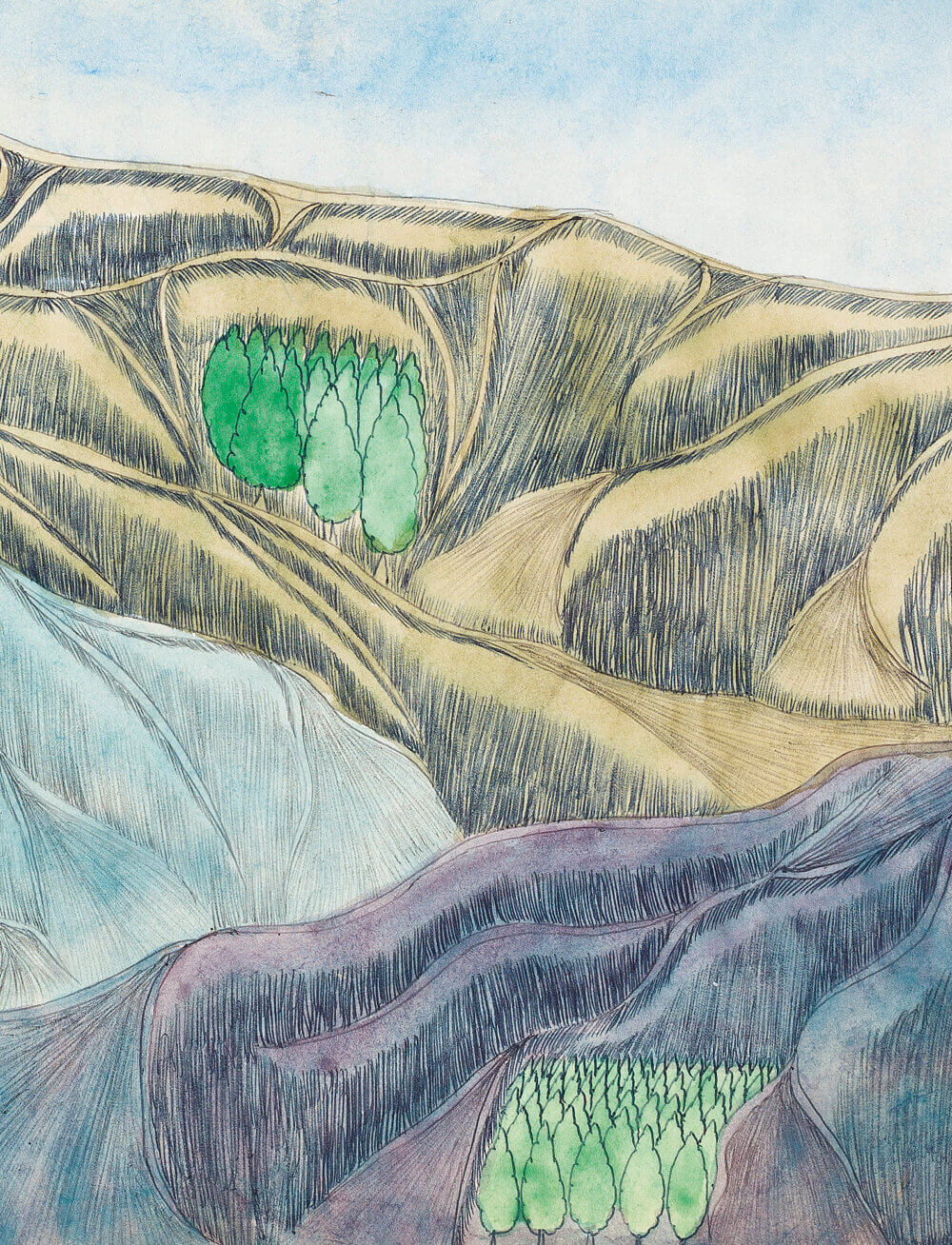
Mount Horeb Palestine
In 1962 at the age of 71, Joseph Elmer Yoakum (circa 1891–1972) reported having a dream that inspired him to draw. Thereafter the retired veteran began a daily practice and over the next 10 years produced some 2,000 works.
Yoakum was born into poverty, had very little schooling, and at an early age left home to join a circus. He wound up working with several circuses, traveling across the United States as well as abroad and becoming intimately familiar with the world's various landscapes. These experiences would provide the foundational memories that fueled his deeply spiritual vision decades later.
When he began to put that vision to paper in his apartment on Chicago's South Side in the early 1960s, Yoakum quickly developed a unique visual language, independent and distinct from other artists in the city, such as those involved in the flourishing Black Arts Movement or the up-and-coming Chicago Imagist group. His drawings—predominantly landscapes in ballpoint pen, colored pencil, pastel, and watercolor and inscribed with locations from all seven continents—reflect the scope of his national and international travels as well as his idiosyncratic and poetic vision of the natural world.
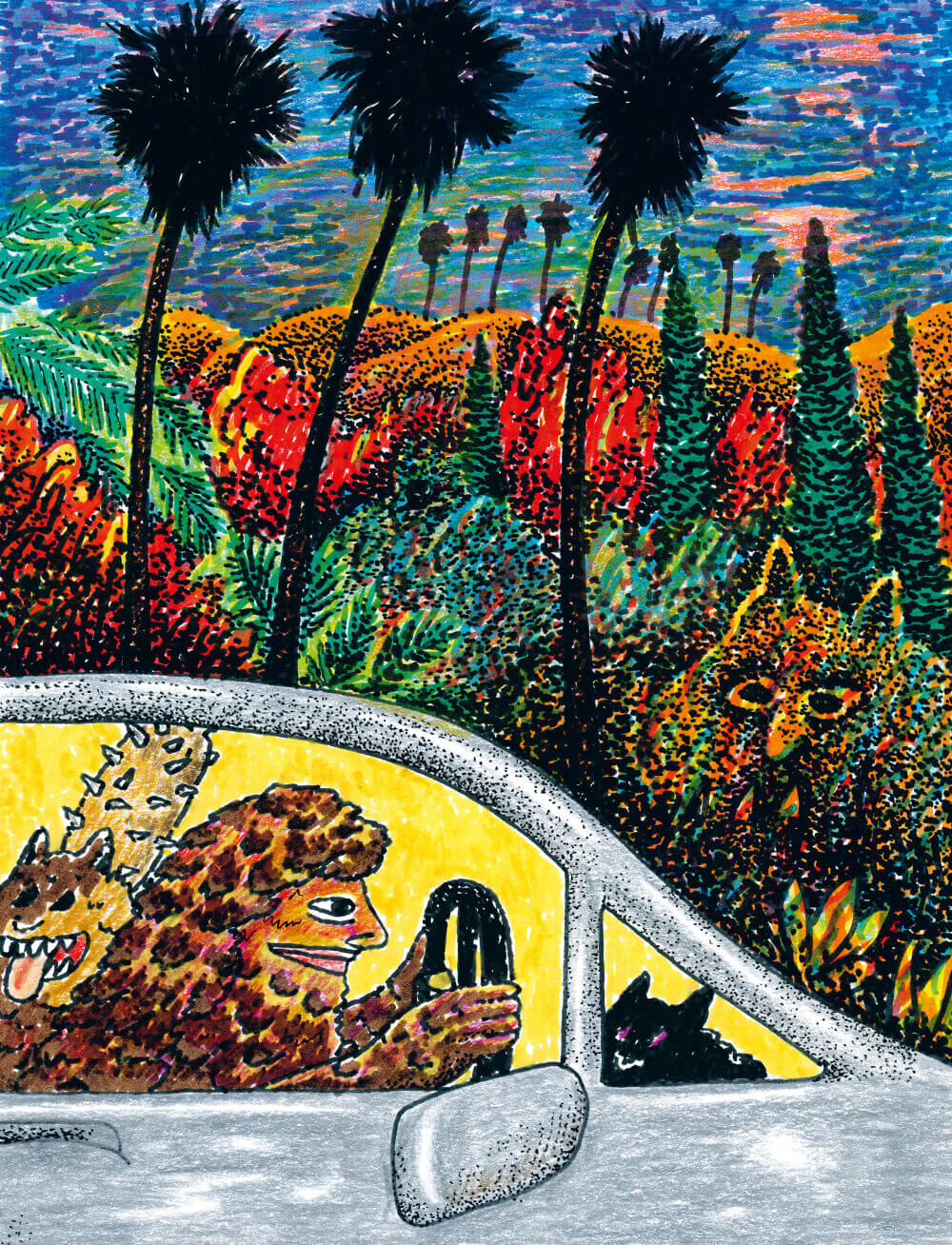
Plant-Based Monster Trucks
Plant-Based Monster Trucks is the latest drawing collaboration between Swiss illustrators and artists Lina Müller and Luca Schenardi. In September 2023, they spent a month in an early 1900s bungalow in Echo Park, Los Angeles—their first time visiting the city.
It felt like a Lynchian dream: wandering through paradise-like garden neighborhoods, hearing owls at night from bed, watching coyotes from the porch swing at dusk, sitting in cars rolling along in an endless stream of other cars. But mesmerizing scenes could shift abruptly into unsettling ones. The artists were drawn to the contrast between light and shadow – on multiple levels. A peaceful stroll down a quiet street lined with blooming flowers suddenly turns into a frantic escape from a bloodhound trying to tear through a fence to get to them. A sinister stairway leading down from the sunlit Sunset Boulevard awakens primal fears. A black hole in the last few meters of a dark sidewalk—just before reaching a legendary diner-turned-music-club – seems like it could swallow you whole. Plant-based pizzas kill your appetite. And monster trucks are real.
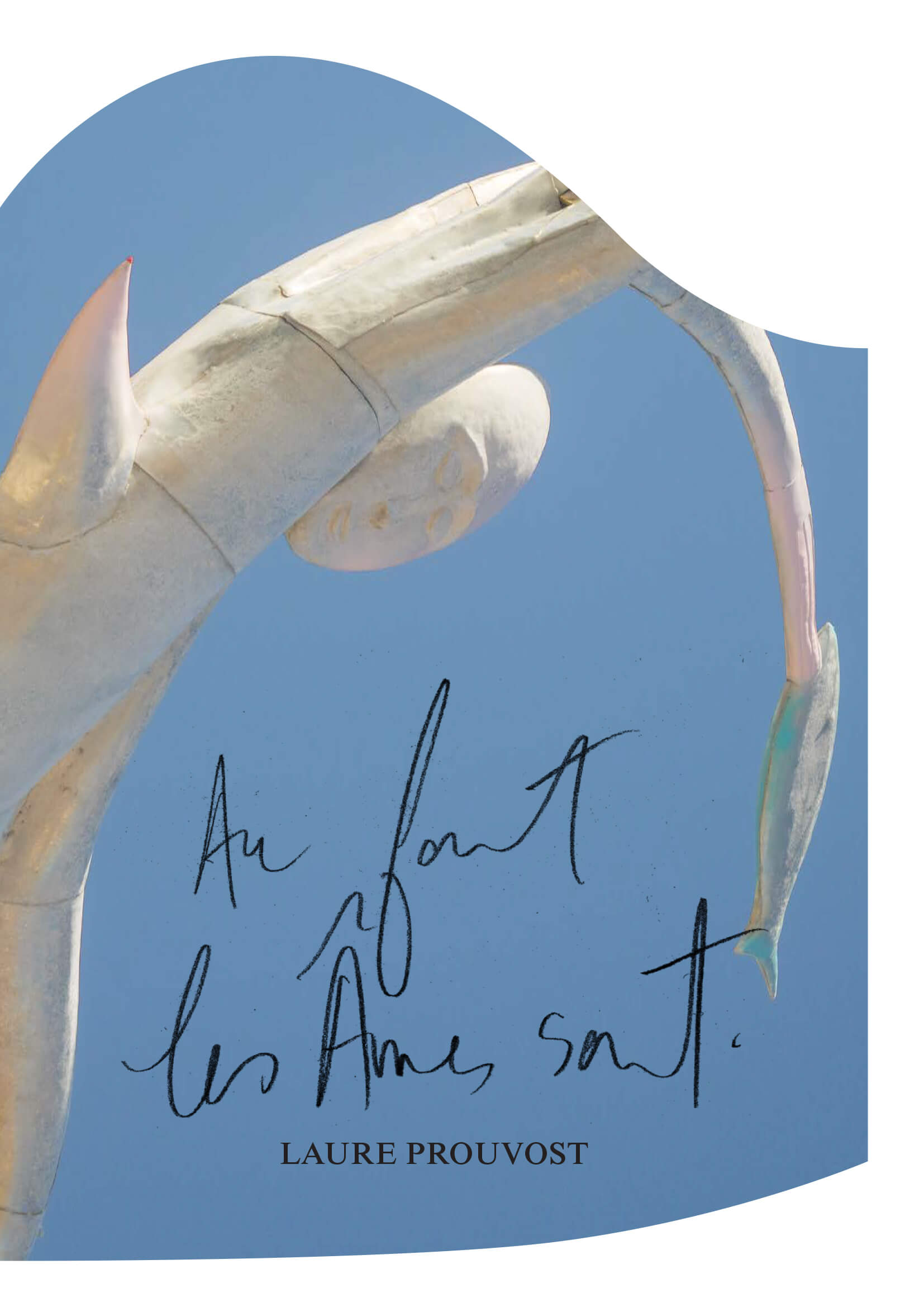
Au fort les âmes sont
Exclusive works designed by Laure Prouvost for her carte blanche at the Mucem in Marseille, a series of immersive and poetic installations in the heart of Fort Saint-Jean, photographed by Raphaël Massart for this cut-out book, between an artist's book and an exhibition catalogue, accompanied by drawings and critical texts.
For the Mucem, Laure Prouvost has created a series of immersive installations in the heart of Fort Saint-Jean. Repurposed everyday objects, glass sculptures, sound mirages, and underwater videos shot in the depths of the calanques and around Frioul compose a sensitive and poetic universe. Between fiction and reality, the artist invites visitors on a sensory journey where everything is transformed: forms, narratives, and life itself.
The book was conceived as a visual journey leading from the Old Port of Marseille to Fort Saint-Jean and into the very heart of each work. To recreate this encounter between artist Laure Prouvost and the Mucem, there is a constant dialogue between the exterior—the sea, the stone of the fort—and the interior—the intimacy of the installations that unfold in the air, in the bowels of the earth, and underwater... Designed in close collaboration with the artist, the book captures this moment through photographic work carried out especially by Raphaël Massart and an evocative form designed by the artist: like a book that also floats in the Mediterranean. To accompany this visual unfolding, a booklet embedded in the heart of the book contains texts by Hélia Paukner, curator of the exhibition, and Mathilde Roman, art historian.
Published on the occasion of the eponymous exhibition at the Mucem, Marseille, in 2025.
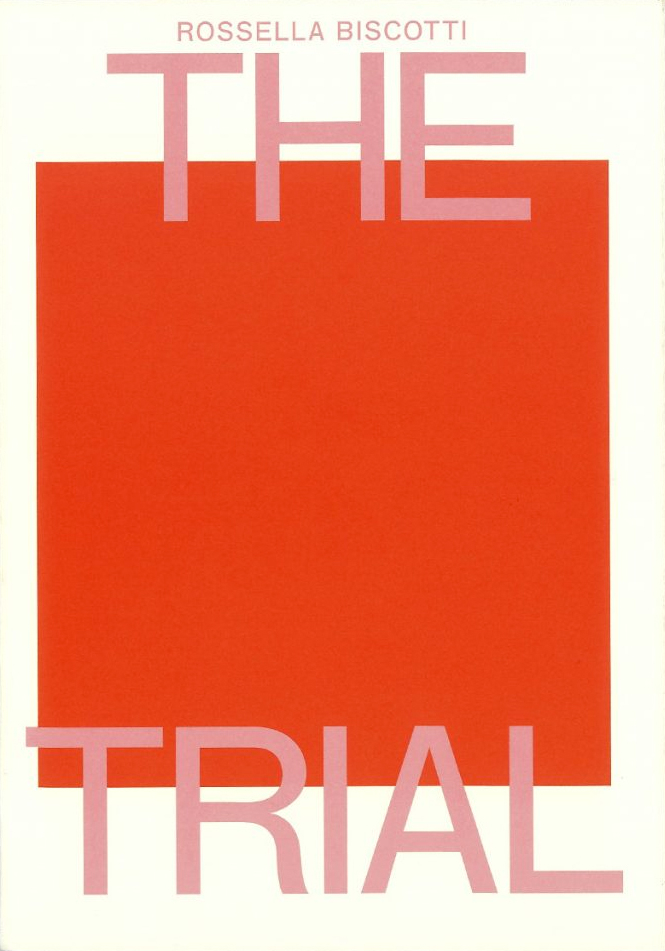
The Trial
The Trial is an extensive publication chronicling the decade-plus-long evolution of one of Rossella Biscotti's seminal works, focusing on the trials of members of the revolutionary left-wing movement Autonomia Operaia in the early 1980s, an emblematic judicial drama of Italy's Years of Lead.
The core of the book is the English transcription of a six-hour audio piece, originally composed from hundreds of hours of the trial's archival recordings broadcast by Radio Radicale. Edited like a theatrical script, The Trial becomes a polyphonic narrative that foregrounds the political voices of defendants in opposition to the structure and language of the legal machine: prosecutors, judges, lawyers. The transcript is accompanied by critical texts by Michael Hardt, Daniel Blanga Gubbay, and Giovanna Zapperi, as well as a conversation between the artist and philosopher Antonio Negri, one of the trial's key defendants. It investigates how political memory is carried, translated, and embodied across time.
Featuring visual documentation and multilingual excerpts from performances staged across various institutions and countries, this publication traces the work's ongoing reactivation through translation, collaboration, and context-specific interventions.
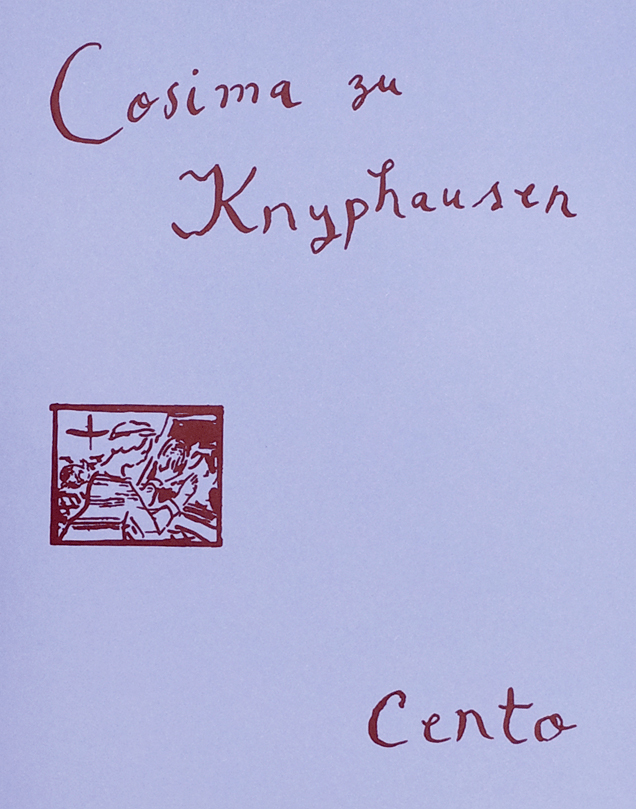
Cento
A cento is a poem composed of verses or fragments from various literary texts that are collaged into a new one. The word comes from an ancient Latin term which means a blanket made of textile scraps.
This etymological root interweaves important aspects of Cosima zu Knyphausen's practice: the materiality of a piece of cloth—the support of the paintings—with the process of quoting, paraphrasing and appropriating art historical motifs, in order to imagine an alternative canon that is shaped by lesbian desire.
Cento brings together a selection of paintings by Cosima zu Knyphausen from the last five years. Instead of following a chronological order, the works are presented in an intertextual reading that puts them in dialogue and show the range of interests that the artist has pursued in her versatile practice, such as her variations on the motif of "women reading", Christine de Pizan's medieval feminist utopia, the interior of a Berlin queer bar, and egg shell universes.
Accompanied by an essay by Rahel Schrohe, and a poem of the artist, the pages of Cento are overarching Cosima zu Knyphausen's themes, as well as assembling the book itself as a context for the work: a mosaic, a patchwork garment, an egg.
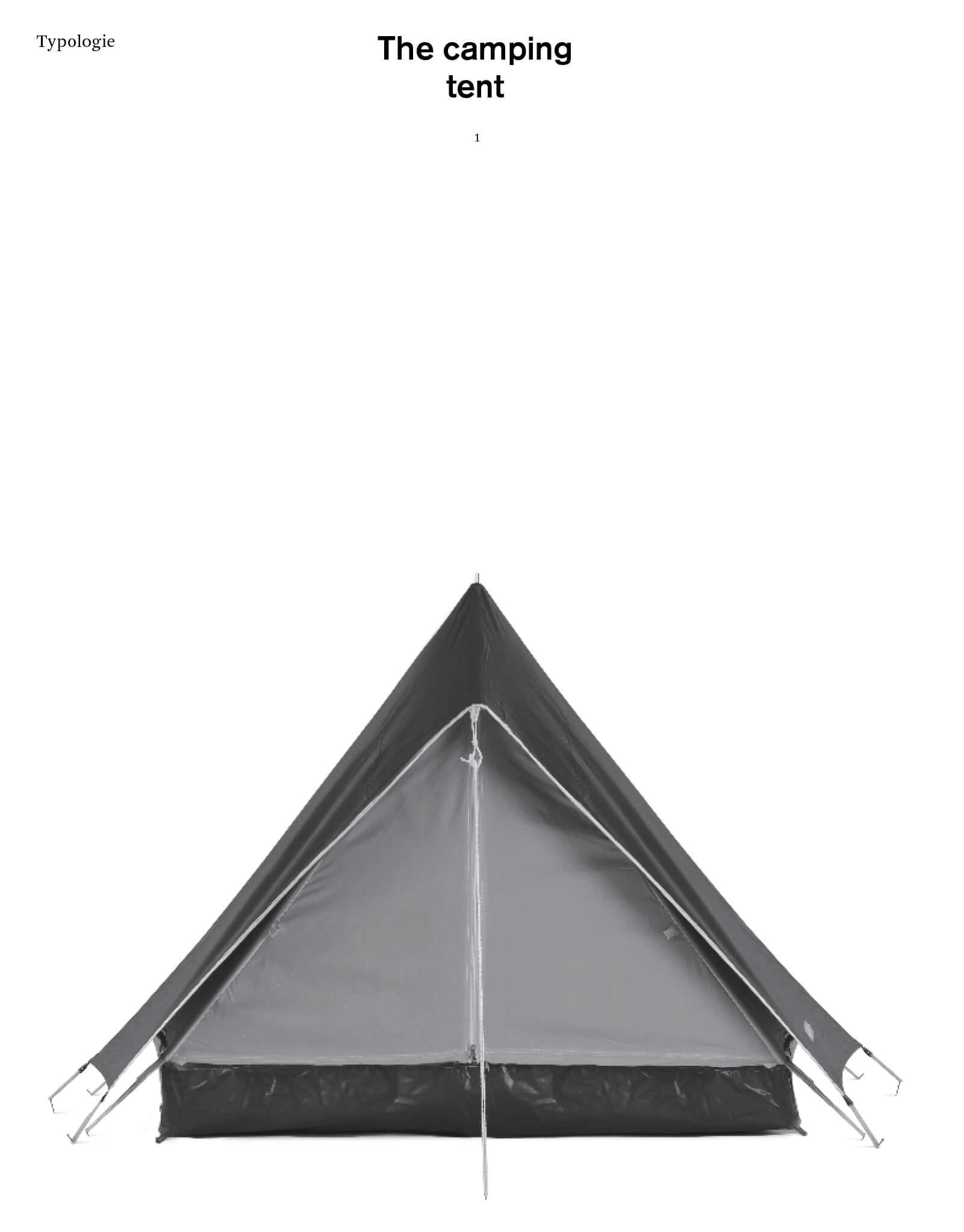
Typologie – The camping tent
Sina Sohrab, Olivier Sirost and 2 more
Collections Typologie reveal a new issue devoted to the Camping Tent. A common motif in both rural and urban landscapes, the tent is a ubiquitous typology whose apparent simplicity is deceptive. Halfway between the architecture we manipulate and the furniture we live in, the tent covers a wide range of uses and brings together heterogeneous realities. Reminiscent of primitive huts, descended from military encampments, shelter for leisure or refuge, precarious yet resistant, protective yet porous, tents are used in both delineated and extreme environments. Simply assembled from ultra-high-performance materials, they are designed in the West and produced in Southeast Asia. Even more than the single-material objects studied in previous Typologie reviews, this composite object makes us aware of the complex nature of the things that surround us.
The book is composed of 136 pages and published both in a French and an English version. As in the former issues, the first part of the book gather a collection of 60 tents from all around the world showing the wide diversity of shape of this object. This part is carefully photographed and reproduced in black and white along 88 pages.
The second part of the book put together an introduction text by journalist Sina Sohrab and a crossed interview between three professionals who are sensitive to and knowledgeable about it: Olivier Sirost, historian and sociologist specialized in Camping, Anna Ferrino, director of the Italian company Ferrino, the oldest manufacturer of tent in Europe and Raphael Têtedoie, a designer of outdoor gears and expert in tent.
This section, which spans 48 pages, is illustrated with a photo report from a Chinese factory, archival images, and a photographic series by Anaick Lejart and Marine Armandin.
Texts by Sina Sohrab, Olivier Sirost, Anna Ferrino, Raphaël Têtedoie.
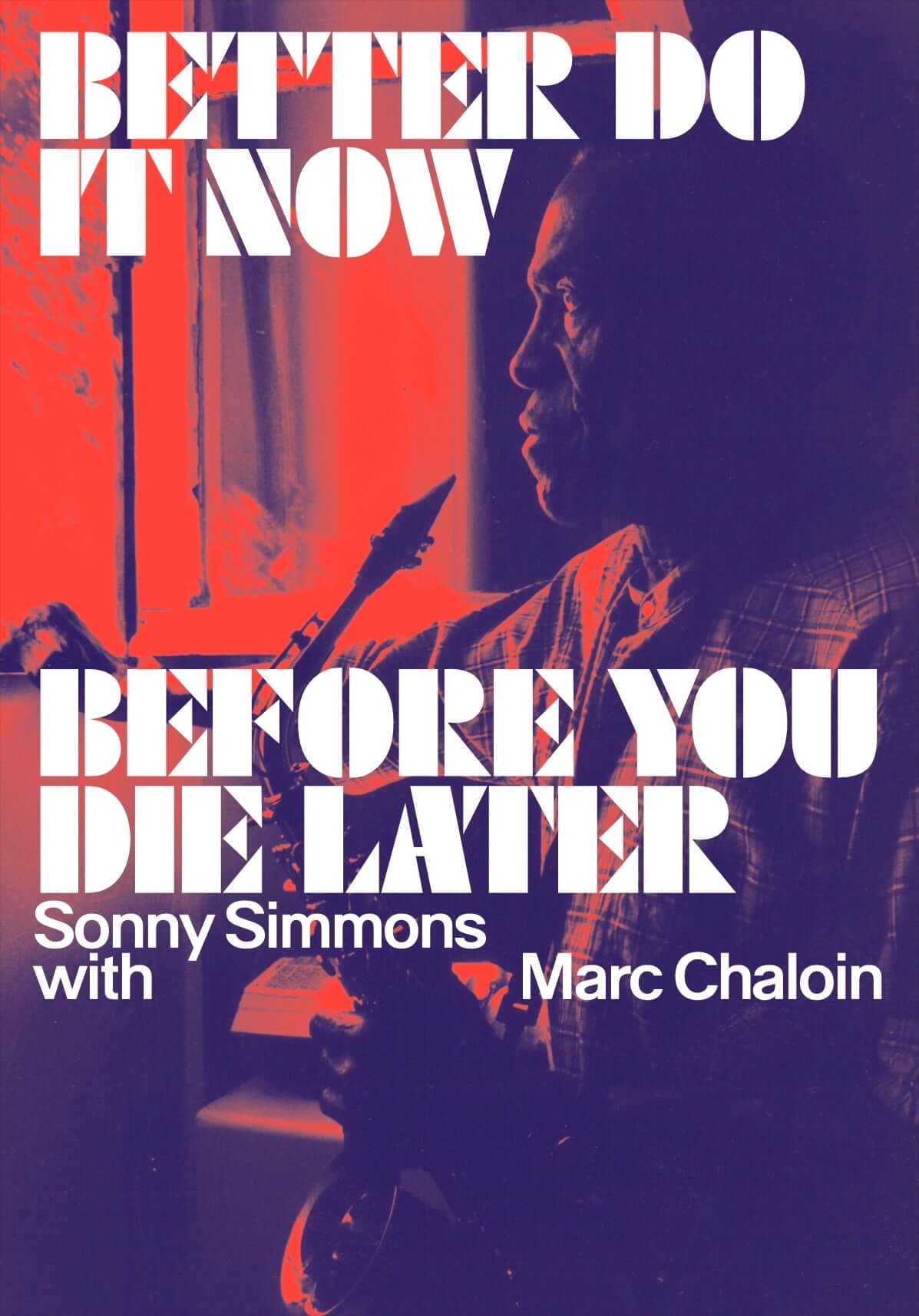
Better Do It Now before You Die Later: Sonny Simmons with Marc Chaloin
Though his years in the New York free-jazz scene of the sixties cemented his reputation as "one of the most forceful and convincing composers and soloists in his field," saxophonist Sonny Simmons (1933–2021) was nearly forgotten by the '80s, which found him broke, heavily dependent on drugs and alcohol, and separated from his wife and kids. "I played on the streets from 1980 to 1994, 365 days a year," Simmons tells jazz historian and biographer Marc Chaloin. "I would go to North Beach, and I'd sleep in the park. The word got around town that Sonny is a junkie, really strung out."
The resurrection of Simmons' career―upon the release of his critically acclaimed Ancient Ritual (Qwest Records) in 1994―has become a modern legend of the genre. In the last two decades of his musical career, Simmons broke through to a new echelon of recognition, joining the pantheon of great innovators and masters of the music. But to this day he remains an undersung figure. Here, in the first ever book dedicated to his life, Simmons recounts his childhood in the backwoods of Louisiana, his adolescence in the burgeoning Bay Area jazz scene and his star-studded life in New York playing alongside the greats.
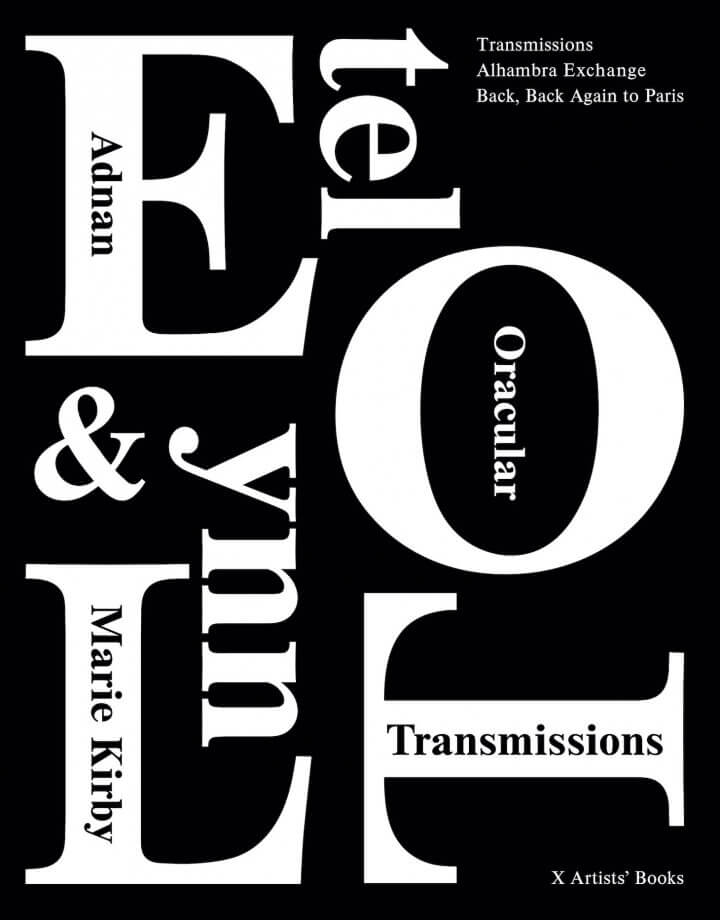
Oracular Transmissions
Oracular Transmissions weaves together three of the most recent collaborative projects Etel Adnan and Lynn Marie Kirby have completed through processes of exchange and translation: Back, Back Again to Paris (2013), The Alhambra (2016), and Transmissions (2017).
The book also includes poems by Denise Newman, a friend to both Adnan and Kirby, and an introduction by Kadist Foundation curator Jordan Stein presenting their works and performances.
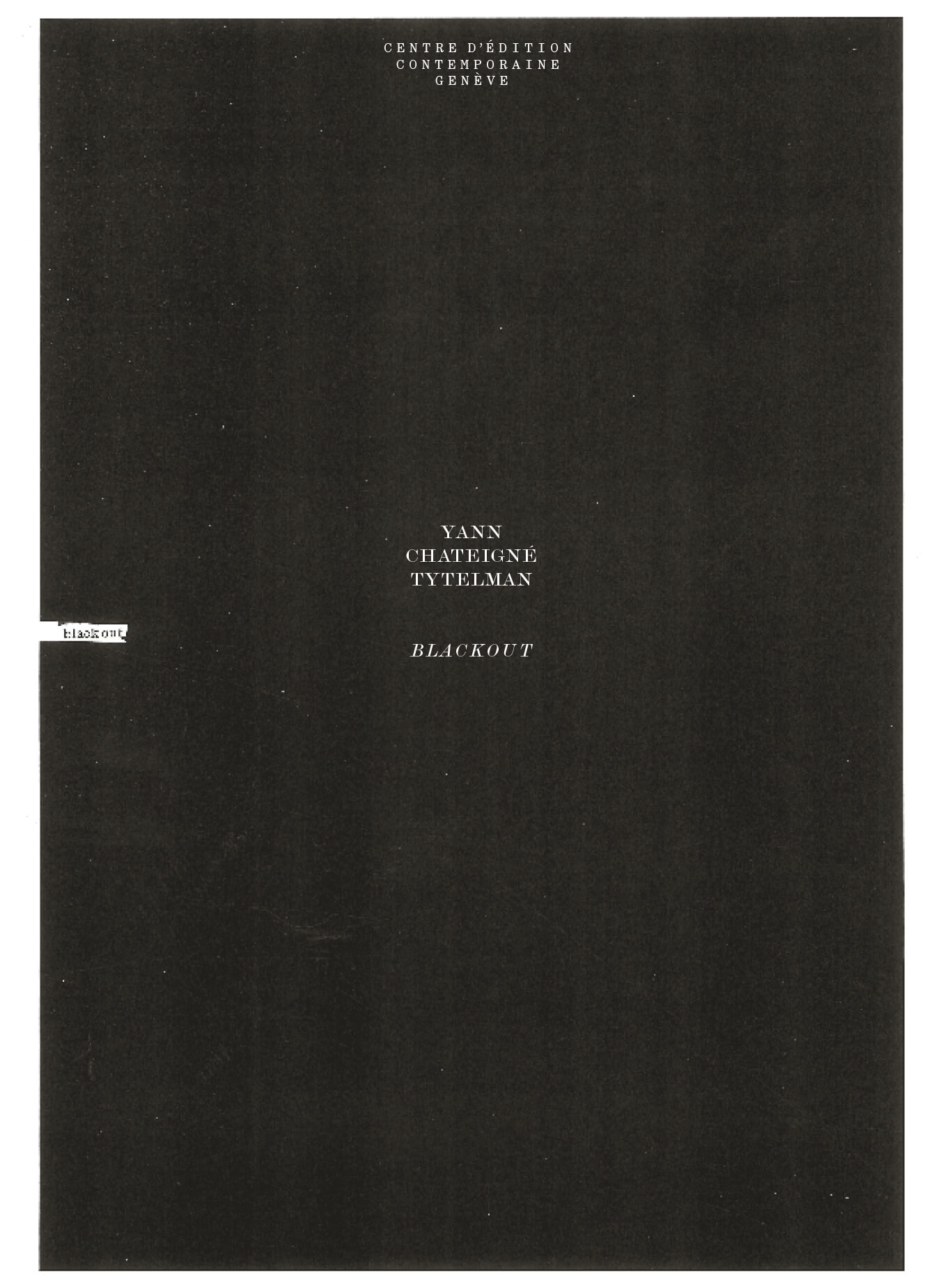
CEC (Centre d'édition contemporaine)
Blackout
Un texte très personnel de Yann Chateigné Tytelman, commissaire d'exposition et critique, qui établit un lien entre son passé, son enfance et son parcours de curateur, ses choix artistiques, ses expositions, souvent en lien avec la thématique du silence.
« Tout a commencé par une lettre à mon père. Cela faisait une dizaine d'années qu'il était mort, et j'ai tout à coup eu envie de lui écrire au sujet du silence, de son silence, du silence entre nous. Cela a commencé en 2020, comme une nécessité. Le silence, alors, était frappant. Il résonnait avec d'autres voix effacées, d'autres vides, d'autres émotions. J'ai cru que je n'arriverai pas à m'arrêter. Ni journal, ni essai, ni nouvelle, Blackout est un tissage, une tresse faite de ces lignes de silence, et raconte, par fragments, l'histoire d'une dépossession, d'une entrée dans l'obscurité. »
Cette publication s'inscrit dans la collection Before publication qui réunit textes d'auteurs ou inserts d'artistes.
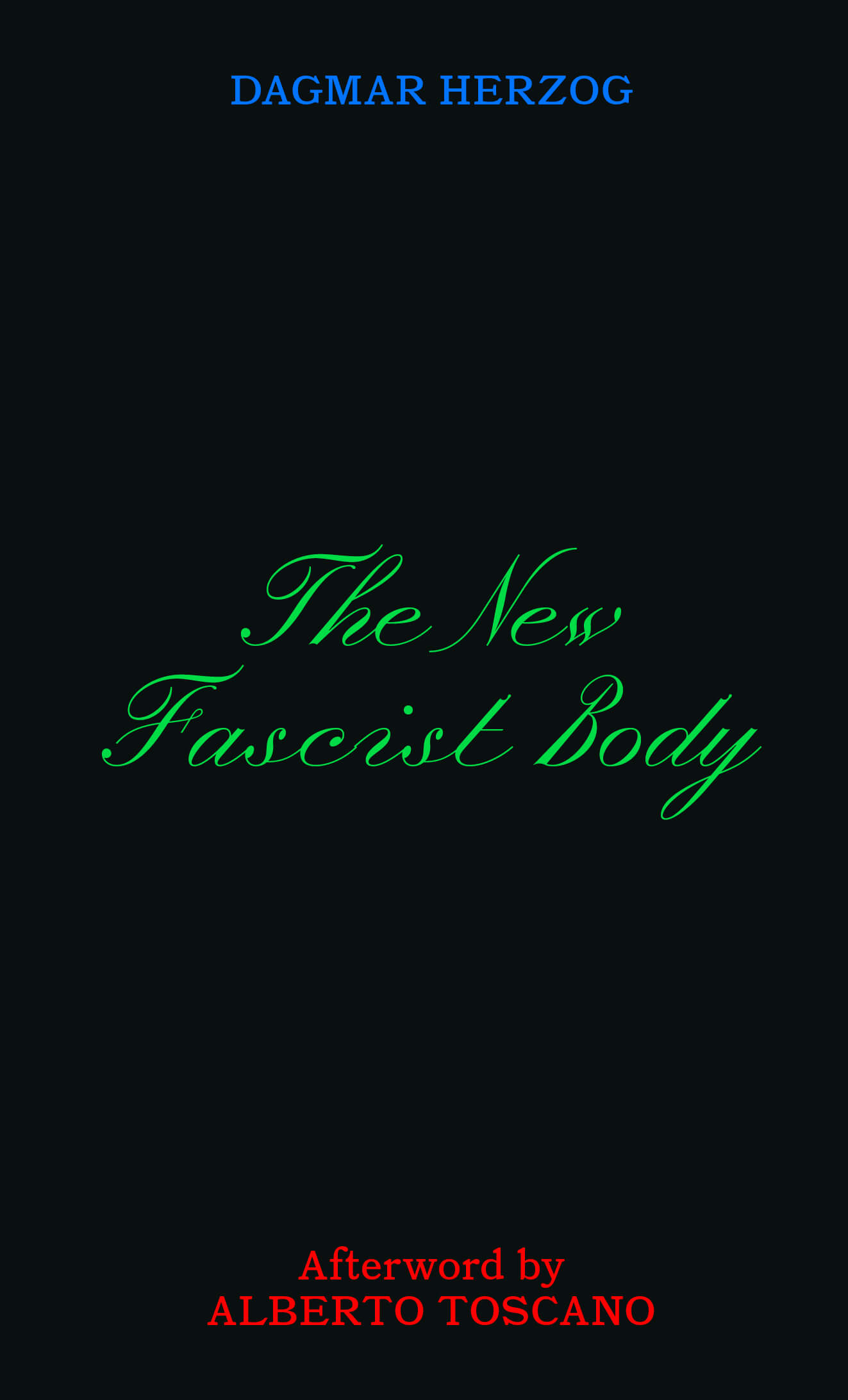
The New Fascist Body
The success of new far-right movements cannot be explained by fear or rage alone – the pleasures of aggression and violence are just as essential. As such, racism is particularly intense when it is erotically charged, migration presenting as a sexual threat to white women being one of many examples. Germany’s strikingly successful right-wing political party Alternative für Deutschland is, according to the historian Dagmar Herzog, characterized by this “sexy racism,” with its second main feature being that of an obsessive antidisability hostility—both elements resonating strongly with Nazism. In The New Fascist Body, Herzog connects her analysis of fascism’s libidinous energy with its animus against bodies perceived as imperfect. Only by studying the emotional and intellectual worlds of past fascisms can we understand and combat their current manifestations.
The book features an afterword by Alberto Toscano, author of Late Fascism: Race, Capitalism and the Politics of Crisis (Verso 2023).
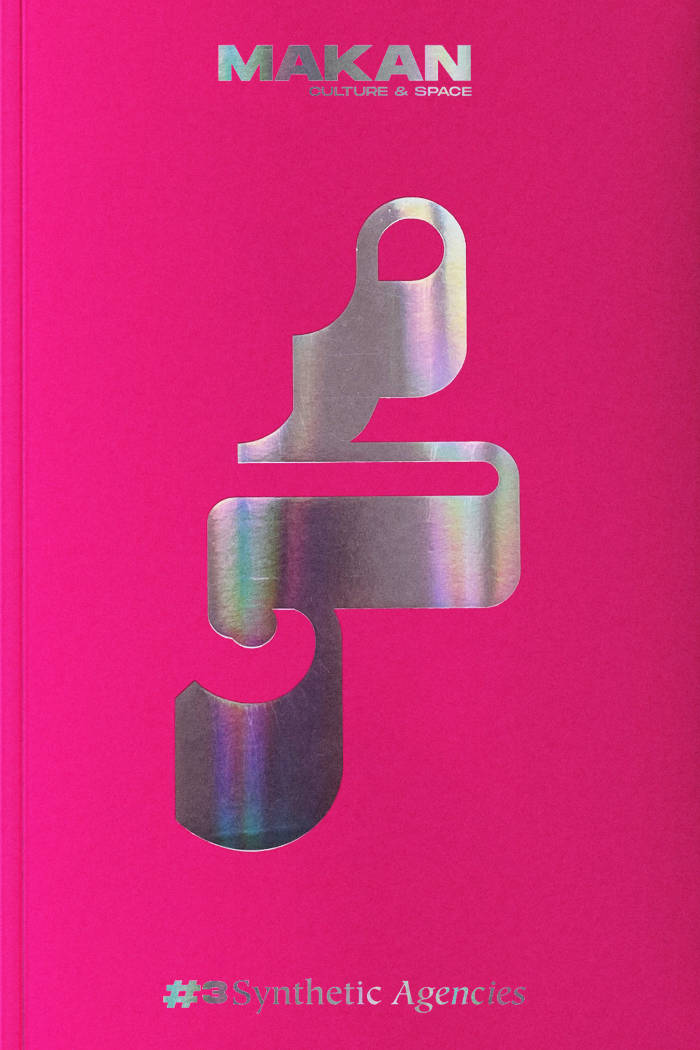
MAKAN #3 / Synthetic Agencies
Building on the foundations of the first two issues, Synthetic Agencies invites a rethinking [and unthinking] of the assumptions, polarities, and discontents surrounding the notion of agency. Traditionally defined in Western thought as the capacity to act and effect change, agency is inseparable from questions of power and the often invisible structures through which power operates. The various contributions interrogate how agency is produced, constrained, or distributed through the systems of knowledge, design, and governance that shape our built environments, technologies, media, and cultures. They were are invited to right (as much as write on) agency, reflecting on how it operates across different scales and contexts, and imagining alternative worlds or configurations. Ultimately, Synthetic Agencies understands agency not as a fixed attribute but as a contested lens through which we might read, reshape, or resist the conditions of the present.
With contributions by Amine Houari, Driss Ksikes, Fehras Publishing Practices, Hamed Sinno, Helga Tawil-Souri, Lada Hršak, Mayada Madbouly, Myriam Ababsa, Nzinga Biegueng Mboup, Ola Hassanain, Omer Shah, OPPA, Salma Barmani, Samia Henni, Tarek El-Ariss, Zaidoun Hajjar.
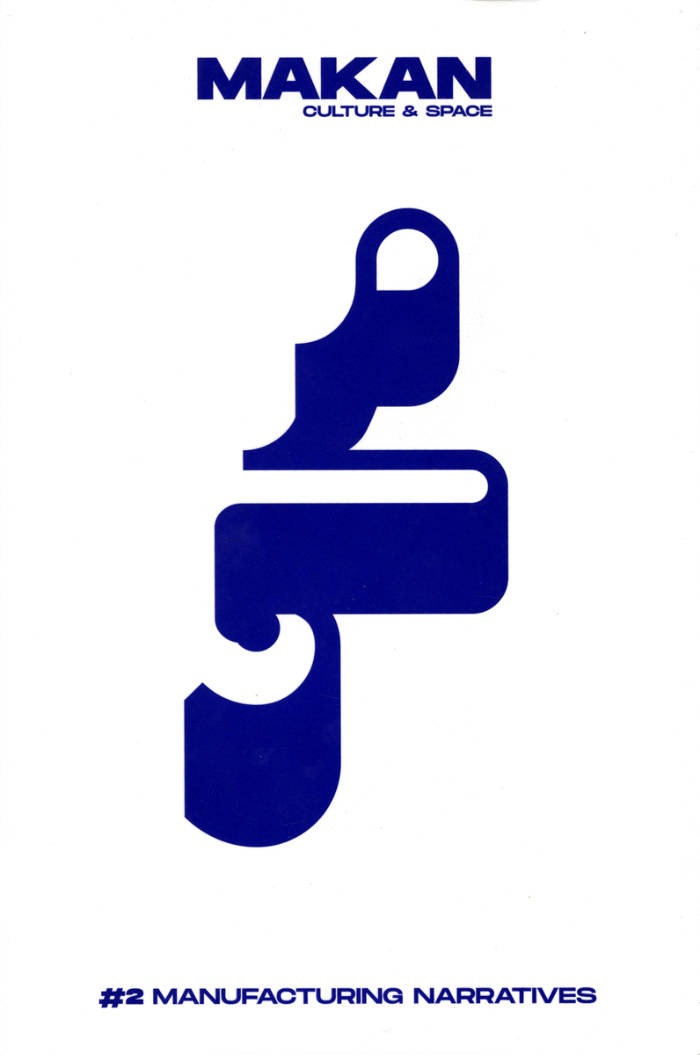
MAKAN #2 / Manufacturing Narratives
In its second issue, Manufacturing Narratives, Makan focuses on how interrogating narrativity can provoke fundamental questions about how societies define or choose to accept societal or historical truths in today’s world. Spanning across [and beyond] the Mashreq and Maghreb, the various contributions reflect a shared space of inquiry that bridges geographies and fosters emergent dialogues across shifting territorialities. This issue invited contributors to right (as much as write) narratives: to question authorship and its social collectivities, to retell alternative public histories, to explore gender roles, and to unsettle the exoticism, folklorization, and political textures of fiction as a practice of indiscipline. Together, these contributions re-articulate the genealogies of our present through the pluralities of the past, offering tools to imagine and manufacture alternative futures, and realities otherwise.
With contributions by Ala Younis, Bari Abbassi, George Bajalia, Karim Kattan, Karima Kadaoui, Tamkeen, Kenza Sefrioui, Lahbib El Moumi, Laila Hida, Maureen Mougin, Mohamed Amer Meziane, Monica Basbous, Nadia Tazi, Sénamé Koffi Agbodjinou, Salma Barmani, Sonia Terrab, Soufiane Hennani, Yto Barrada.
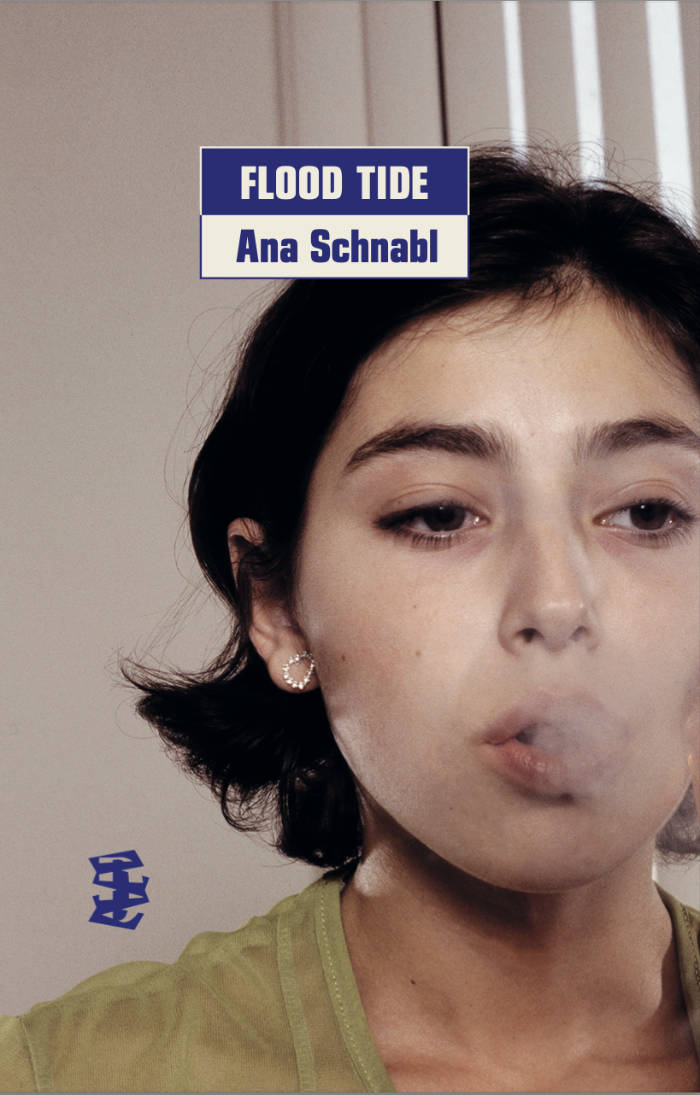
Flood Tide
In moderate physical decline, and with an immoderate weed habit, the novelist Dunja Anko returns home to the Adriatic coast to play detective and solve the mystery of her brother’s death. The going is arduous, the people inscrutable; her old friends have had years to forget – or to convince themselves they don’t remember. Dunja must contend with desire and disgust, curiosity and fear, as she begins to doubt her reasons for returning. Elegantly plotted, funny and self-reflexive, Flood Tide is a psychologically deft exploration of the trauma wrought by human limitation and indecision.
"A dazzling mix of narrative styles (even genres), a linguistic rollercoaster, and a book that demands both close attention and literary sensibility . . . The reader is hooked." — Boštjan Videmšek
"Mysterious, precise and haunting, Flood Tide suggests that every homecoming is a return to a crime scene." — Chris Kraus
Ana Schnabl (b. 1985) is a Slovenian writer and editor. She writes for several Slovenian media outlets and is a monthly columnist for the Guardian. Her collection of short stories Razvezani (Beletrina, 2017) met with critical acclaim and won the Best Debut Award at the Slovenian Book Fair, followed by the Edo Budiša Award in Croatia; the collection has been translated into German and Serbian. Three years later Schnabl published her first novel Masterpiece (Mojstrovina, Beletrina, 2020). She toured Europe with the English, German and Serbian translations of the book, which included a residence in the Museumsquartier in Vienna, the Literarisches Colloquium Berlin, and the first European Writer’s Festival in London. The novel was given favourable reviews and mentions in numerous Austrian, German and English media, and was longlisted for the Dublin Literary Award. Her second novel Flood Tide (Plima, Beletrina, 2022) was nominated for the Slovenian Kresnik Award. Her third novel September (Beletrina, 2024) won the Kresnik Award in 2025.
Rawley Grau has been translating literary works from Slovenian for over twenty years, including by such first-rate novelists as Dušan Šarotar, Mojca Kumerdej, Sebastijan Pregelj, Gabriela Babnik and Vlado Žabot. Six of his translations have been longlisted for the Dublin Literary Award, while his translations of Šarotar’s Panorama and Billiards at the Hotel Dobray were shortlisted for the Oxford-Weidenfeld Translation Prize. He has also translated poetry by Miljana Cunta, Miklavž Komelj, Janez Ramoveš and Tomaž Šalamun, among others. In 2021, he received the prestigious Lavrin Diploma from the Association of Slovenian Literary Translators. Translations from other languages include A Science Not for the Earth: Selected Poems and Letters by the Russian poet Yevgeny Baratynsky, which received the AATSEEL prize for best scholarly translation, and, co-translated with Christina E. Kramer, The Long Coming of the Fire: Selected Poems by the modernist poet Aco Šopov, which won the 2025 International Dragi Award for best translation from Macedonian. Originally from Baltimore, Maryland, he has lived in Ljubljana since the early 2000s.

Grand Rapids
Installed alongside the Grand River in downtown Grand Rapids, Michigan, Alexander Calder’s public sculpture La Grande Vitesse has come to symbolize the city. Tess moves there from Ypsilanti, Michigan in 2001—the same year that her mother dies, when everything begins to move, for her, in slow motion. Thrust into adolescence nearly rudderless, fifteen-year-old Tess is intoxicated, angsty, and sexually awake. A decade later, inspired by diary entries and TV reruns, she remembers this summer in the suburbs as the one that redefined her. Its echoes of death are frozen in time like the waves represented in the Calder sculpture or the concrete steps leading down to the churning river. She comes to see Grand Rapids as a collection of architecture and emblems, another home to which she cannot return.
Natasha Stagg is the author of Sleeveless: Fashion, Image, Media, New York 2011–2019 and Surveys: A Novel, both published by Semiotext(e). Her work has appeared in Artforum, Bookforum, Texte Zur Kunst, n+1, Spike Art, Flash Art, Dazed, V, Vice, 032c, and other publications.
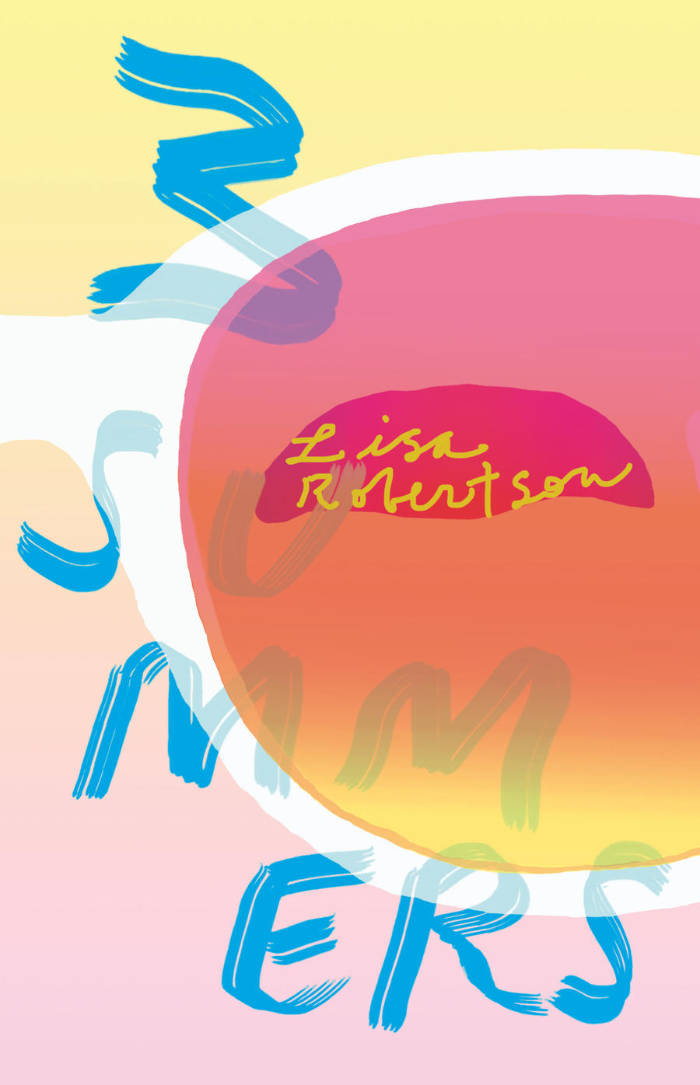
3 Summers
Organs, hormones, toxins, lesions: what is a body? In 3 Summers, Lisa Robertson takes up her earlier concerns with form and literary precedent, and turns toward the timeliness of embodiment. What is form's time? Here the form of life called a poem speaks with the body's mortality, its thickness, its play. The ten poem-sequences in 3 Summers inflect a history of textual voices – Lucretius, Marx, Aby Warburg, Deleuze, the Sogdian Sutras – in a lyricism that insists on analysis and revolt, as well as the pleasures of description. The poet explores the mysterious oddness of the body, its languor and persistence, to test how it shapes the materiality of thinking, which includes rivers and forests. But in these poems' landscapes, the time of nature is inherently political. Now only time is wild, and only time – embodied here in Lisa Robertson’s forceful cadences – can tell.
‘Robertson makes intellect seductive; only her poetry could turn swooning into a critical gesture.' —The Village Voice
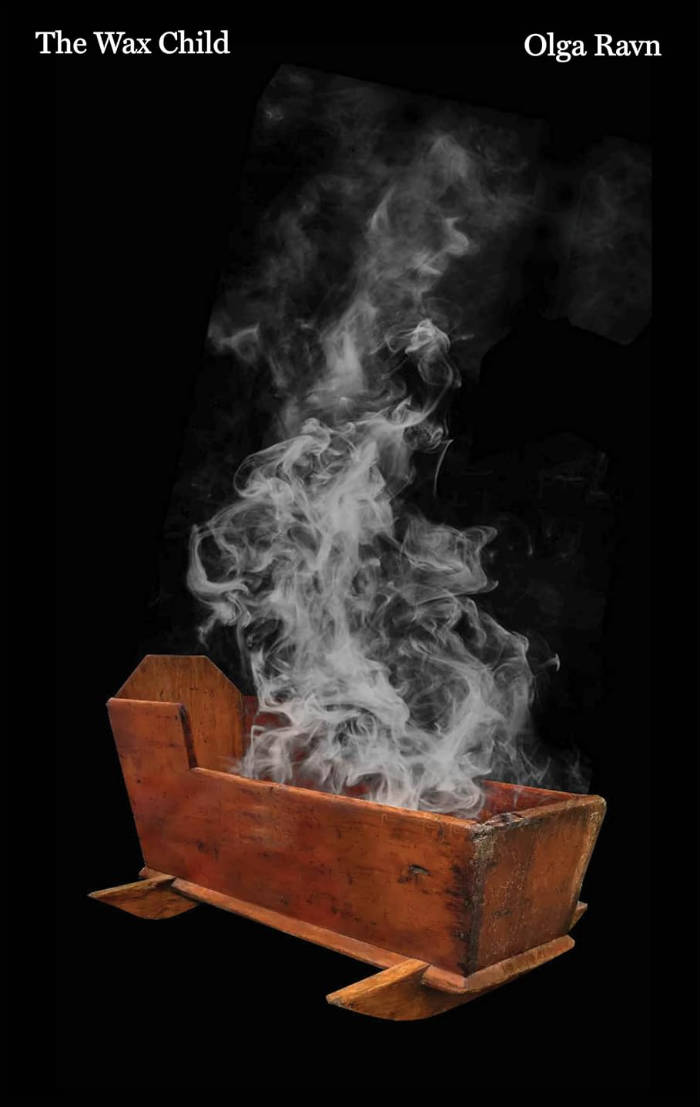
The Wax Child
In seventeenth-century Denmark, Christenze Kruckow, an unmarried noblewoman, is accused of witchcraft. She and several other women are rumored to be possessed by the Devil, who has come to them in the form of a tall headless man and gives them dark powers: they can steal people’s happiness, they have performed unchristian acts, and they can cause pestilence or even death. They are all in danger of the stake.
The Wax Child, narrated by a wax doll created by Christenze Kruckow, is an unsettling horror story about brutality and power, nature and witchcraft, set in the fragile communities of premodern Europe.
Deeply researched and steeped in visceral, atmospheric detail, The Wax Child is based on a series of real witchcraft trials that took place in Northern Jutland in the seventeenth century. Full of lush storytelling and alarmingly rich imagination, Olga Ravn weaves in quotes from original sources such as letters, magical spells and manuals, court documents, and Scandinavian grimoires.
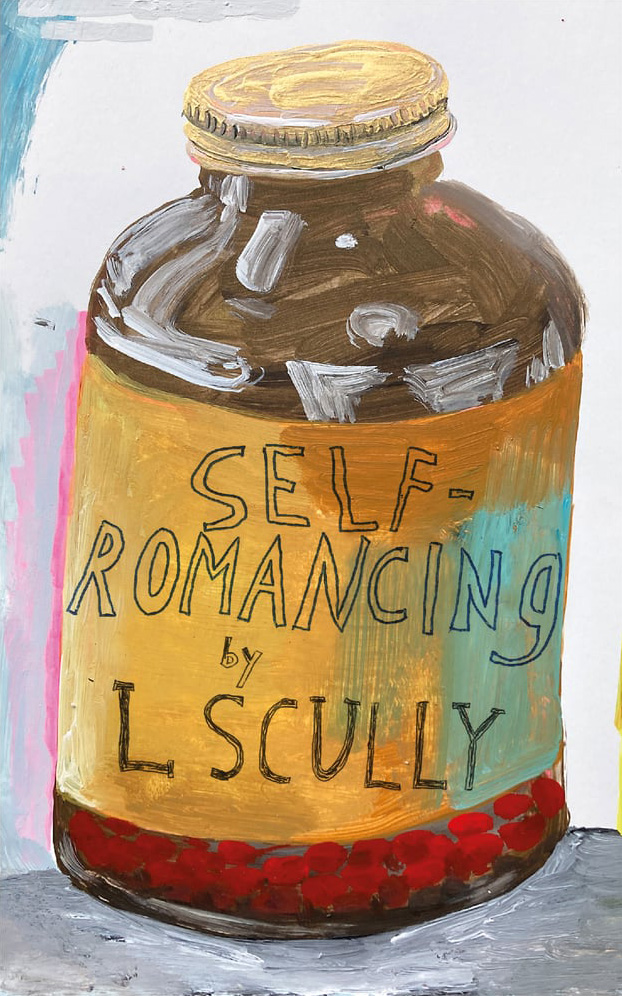
Self-Romancing
In a tonal mash-up of Jenny Holzer’s Truisms, confessional poetry, and fortune telling, Self-Romancing draws you into the amorous and obsessive inner life of an unnamed romantic. Relatable and snarky, heartfelt and horny, L Scully fortifies irony with vulnerability, bringing readers into a narrative as intimate as slumber parties and ordinary as Trader Joe’s. Bursting with the giddy charm of the everyday, Self-Romancing plays with form, turning a book into a crush, a crank call, a manifesto.
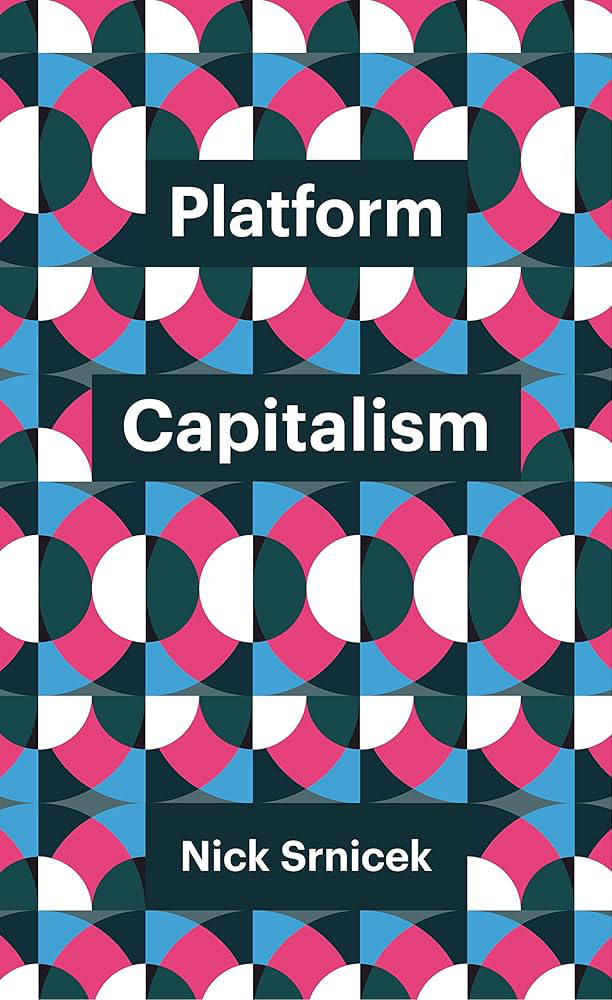
Platform Capitalism
What unites Google and Facebook, Apple and Microsoft, Siemens and GE, Uber and Airbnb? Across a wide range of sectors, these firms are transforming themselves into platforms: businesses that provide the hardware and software foundation for others to operate on. This transformation signals a major shift in how capitalist firms operate and how they interact with the rest of the economy: the emergence of ‘platform capitalism’.
This book critically examines these new business forms, tracing their genesis from the long downturn of the 1970s to the boom and bust of the 1990s and the aftershocks of the 2008 crisis. It shows how the fundamental foundations of the economy are rapidly being carved up among a small number of monopolistic platforms, and how the platform introduces new tendencies within capitalism that pose significant challenges to any vision of a post-capitalist future. This book will be essential reading for anyone who wants to understand how the most powerful tech companies of our time are transforming the global economy."
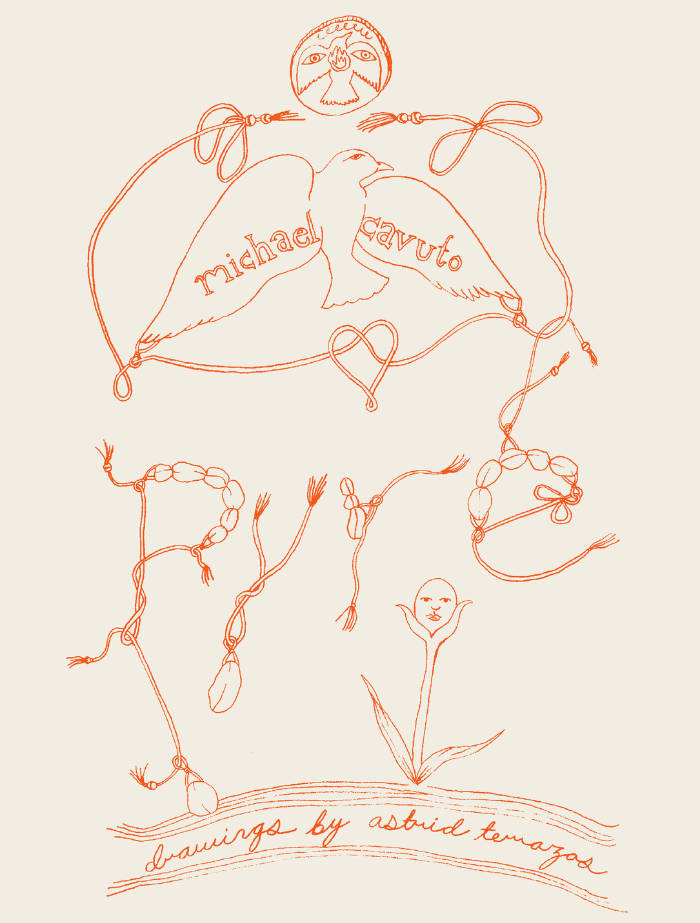
Pyre
Michael Cavuto, Astrid Terrazas
"From this moment / and hence backwards / a visitation / echoes thru the apparent opening / to the tomb / the narrow passage is the mind's reasoning / in clarity / as she moves like a shadow / having lived her life before " — Joanne Kyger, from Places to Go (Black Sparrow, 1970)
"All processes measured as form are traceable in curved decay. Seemingly unmeasurable, unquenchable, the heart stone harbors its own native entropy. The evolution of organs is not ours to decipher. We’re drawn slanting toward the stone in helices of approaching circles. Our movements throw shadows, our bodies ring haloes." — Michael Cavuto, "Isis Theses"
"In the dual work of Isis Theses & Pyre I-V, living, death, language’s work of remembrance, place & poetic lineage all take part in shifting throughlines of recombinant forms, as a spiral spirals back on itself, changed over time. Early on, here, Cavuto writes “There is not enough wood for coffins. There is wood enough for a boat.” a Pyre then is a boat, a burning that is going somewhere, not death-as-end but as an upward & outward movement into collectively shared air, an archeology of connection. “Kyger wrote that memory is a weird dimension carried around invisibly in the ‘mind’’ Cavuto writes, in one of those moments that feels like a key, “Writing, she said, gives history back to you.” But it is not only history that Cavuto is carrying forward in these poems, it is something more spatially complex, enlivened & embodied in the dance of the words, & in the vital breakdown of the words themselves. The poems in Pyre I-V enact their answer to the question ‘what essence is left us when no words are left,’ & leave us, after the ritual process, dazzled with the true sense that something is left, something important of resonance & remembrance, in the atomized language-space; the air around the dis-integrating morphemes shimmering on the page as dissipative, potentiate sparks. —Cody-Rose Clevidence
Michael Cavuto is a poet based in Brooklyn, New York. His books include Country Poems (Knife Fork Book, 2020) and Pyre (Spiral Editions, 2025). With the poets Dale Smith and Hoa Nguyen, he publishes the Slow Poetry in America Newsletter. Along with Tessa Bolsover, he publishes hand-bound poetry books through auric press.
Pyre, Michael Cavuto. Illustrations by Astrid Terrazas. 52p, 8.5" x 6.75", hand sewn with red linen thread. Covers letterpressed on a 1963 Vandercook proof press with Strathmore Premium Grandee paper. Copy text and illustrations printed both offset and digitally on Mohawk felt paper in a first edition of 275. Printed, assembled, and bound in “Kingston, New York,” the unceded and currently occupied lands of the Haudenosaunee, Mohican, Munsee Lenape, and Schaghticoke. With thanks to Vladimir Nahitchevansky and the various friends who helped assemble.
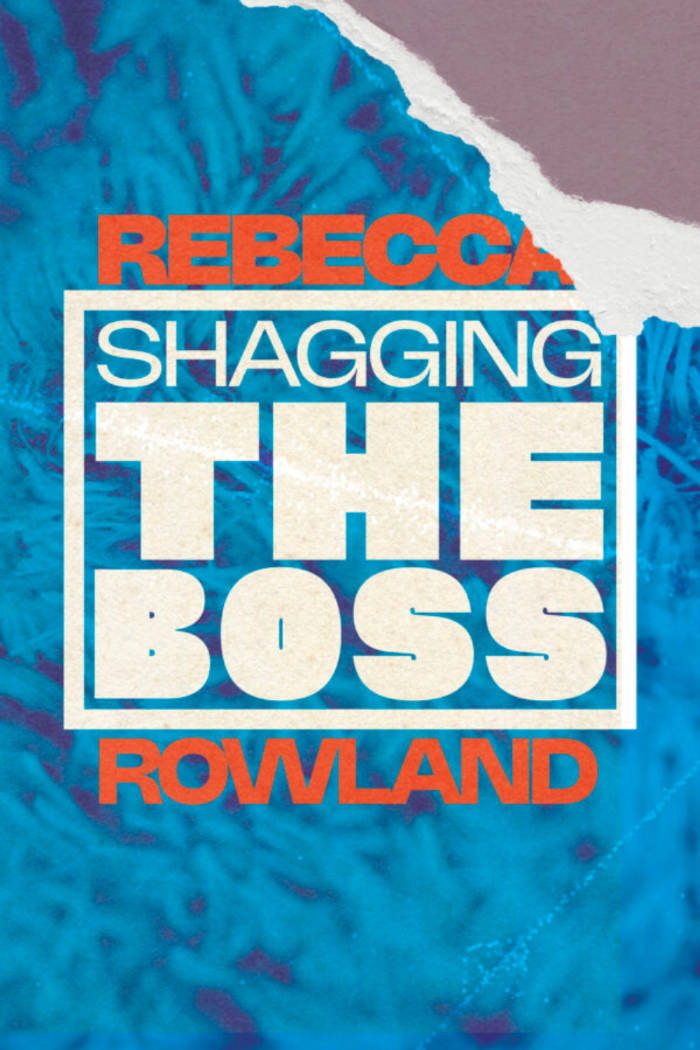
Shagging the Boss
Rebecca Rowland is one of the sharpest writers that I know. This little book combines elements of life in the publishing industry, #MeToo, and a literal boogeyman. It’s long been my desire to do more “social horror.” And Shagging the Boss is the stick I use to measure other submissions in that vein. (Back Cover Text) “Lesson number one: don’t get attached to anyone. Being a cannibal is the only way to truly succeed in this business.” He placed one hand on the door handle, then thought a moment and smiled to himself. “The problem is, once you take a bite, it will never be enough.” After a fortuitous encounter at a local book convention, a liberal arts graduate accepts a position at a flashy publishing company under the tutelage of its charismatic owner only to learn that the press is led, and fed, by a literal boogeyman.
“Rowland tells an exceptionally tight and fast-paced tale about a unique legendary creature stalking the modern publishing industry” — Michael Arnzen, Bram Stoker Award-winning author of Licker and 100 Jolts
“Rowland’s tale is a transgressive mindf*ck that will leave you irreparably unnerved” — L. Stephenson, author of The Goners
“Rowland has a narrative mastery that makes you feel as if a good friend is pulling you in close to tell you some special secret…You’ll be left shook” —Tim Murr, Stranger With Friction
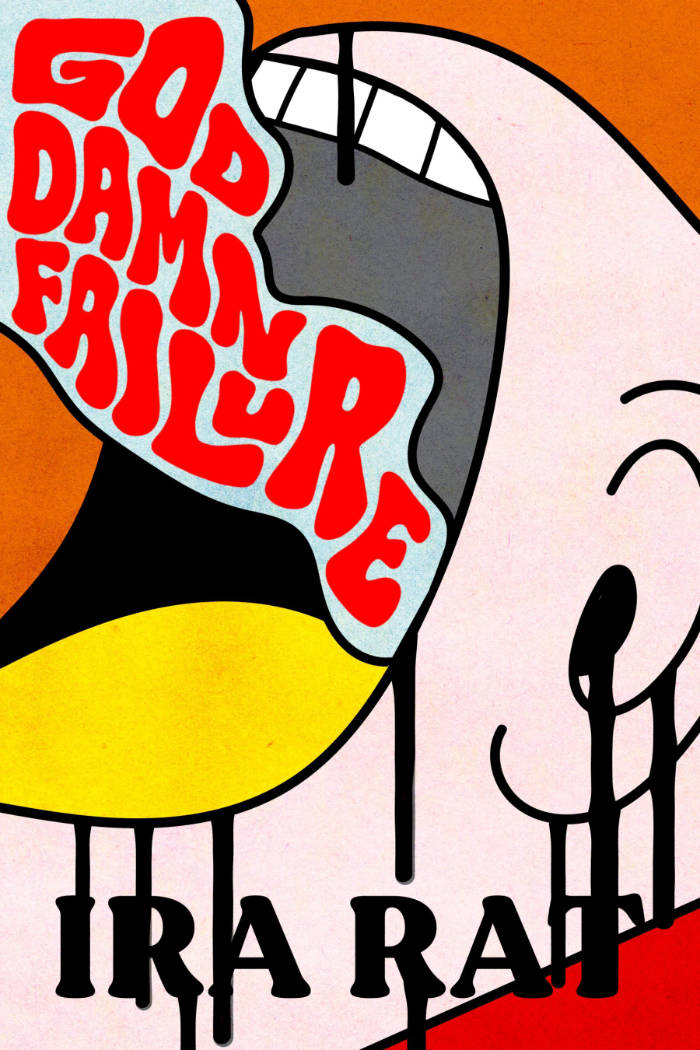
Goddamn Failure
Goddamn Failure gathers the early grotesque and absurd works of cult writer Ira Rat for the first time. Many of them are previously unpublished.
This book is not intended for children or people with good taste.